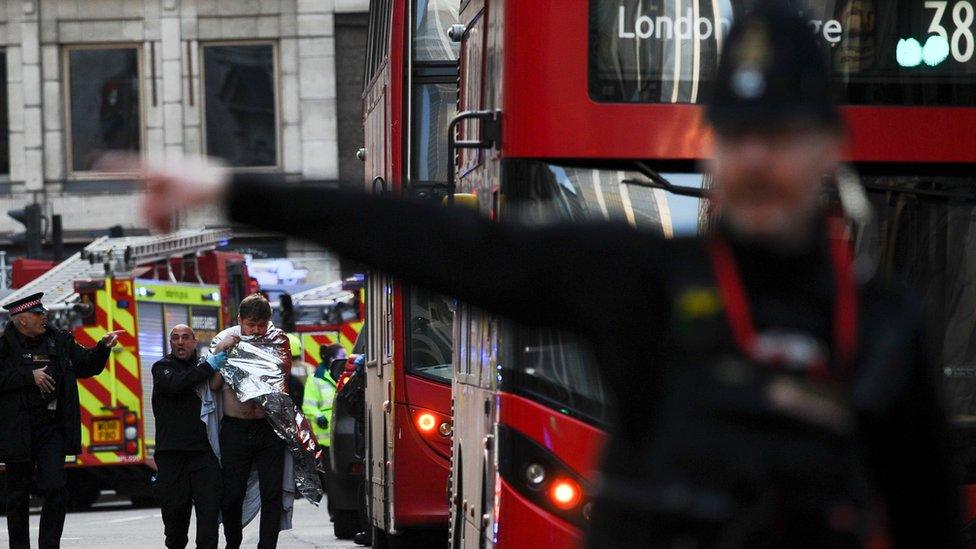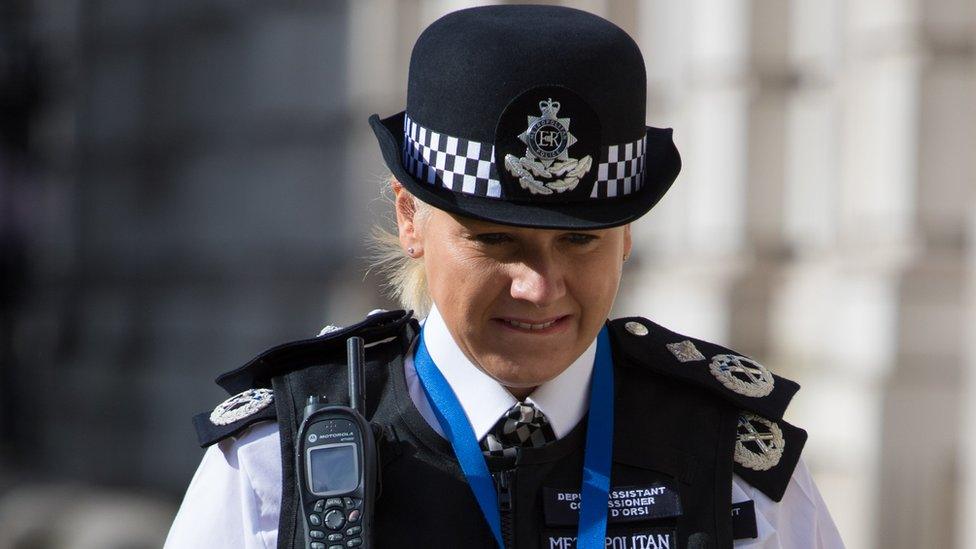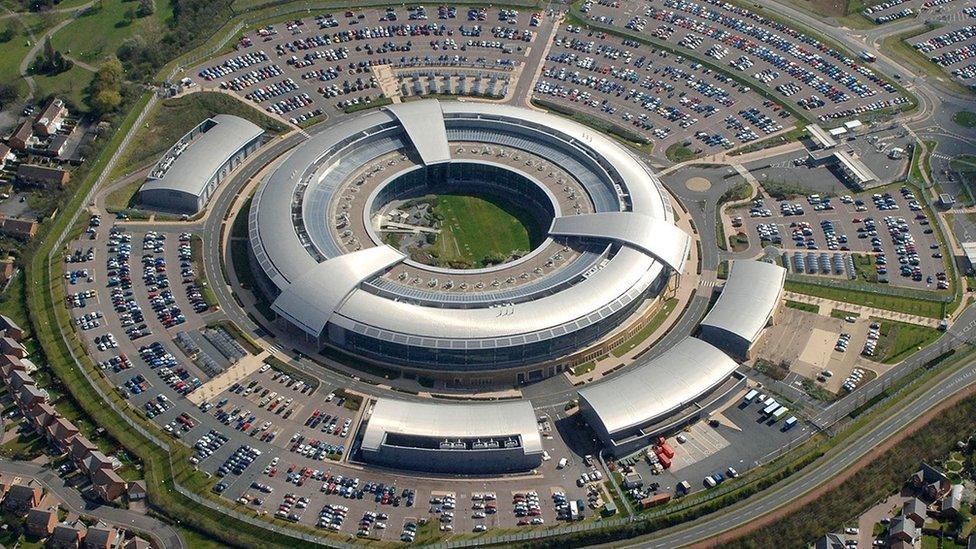Coronavirus: Police warn of lockdown radicalisation threat
- Published

The coronavirus lockdown may have led more individuals to become radicalised as they spend more time online, a police chief has warned.
The Metropolitan Police's Lucy D'Orsi said the impact of the lockdown on the terrorism threat was not yet known.
She urged the public to remain alert and vigilant as people return to crowded places closed in March.
The current UK threat level is "substantial" meaning an attack is likely.
"The reality is that the threat has not gone away," Met Police Deputy Assistant Commissioner D'Orsi told the BBC.
There are also concerns some of the mechanisms to spot the signs someone has been radicalised will not have been present during the pandemic.
Crowded places have been a prime focus for terrorist attacks in recent years.
As lockdown eases, she is concerned terrorists will be looking to make an impact.

Lucy D'Orsi is a national policing lead for protective security
"My plea to the public is as lockdown eases and people return to crowded places, we need to remain alert, we need to remain vigilant," DAC D'Orsi, who is also national policing lead for protective security, said.
The threat level comes from individuals supporting far-right as well as jihadist ideologies.
Police have said their own ability to operate has not been affected by lockdown and they have been able to take advantage of the fact that some people under investigation are staying in one place.
But they are also aware that people are spending more time online, which carries risks as that has increasingly been a means of radicalisation.
DAC D'Orsi said what that meant in terms of radicalisation was as yet unknown.
Some terrorist groups have adapted their methods and messaging to the new environment, including using the coronavirus crisis.
"They are looking to change the way they deliver their propaganda," she said, adding that propaganda often seeks to divide communities.

40,000 DEATHS: Could they have been prevented?
FACE MASKS: When should you wear one?
TESTING: Who can get a test and how?
YOUR QUESTIONS: Our experts have answers

Referrals to the Prevent anti-radicalisation scheme, designed to spot and counter signs of radicalisation, have gone down during the pandemic.
That is because many will come from public bodies, including schools, which will have not been operating in the same way.
It leaves the possibility that a problem has been brewing beneath the surface which may now become visible.
Officers said one advantage of lockdown has been that people have undertaken an online counter-terrorism training course from home.
Some 70,000 people have used the 'Action Counters Terrorism' interactive course which is designed for members of the public to help them spot and report suspicious behaviour and know what to do in the event of an attack.
Overall half a million participants have responded to the call since the course was launched two years ago.
"Having more people with a basic level of awareness, and who know what to do if they see suspicious activity, is a real asset to the police," DAC D'Orsi said.
- Published1 May 2020
- Published2 April 2020
